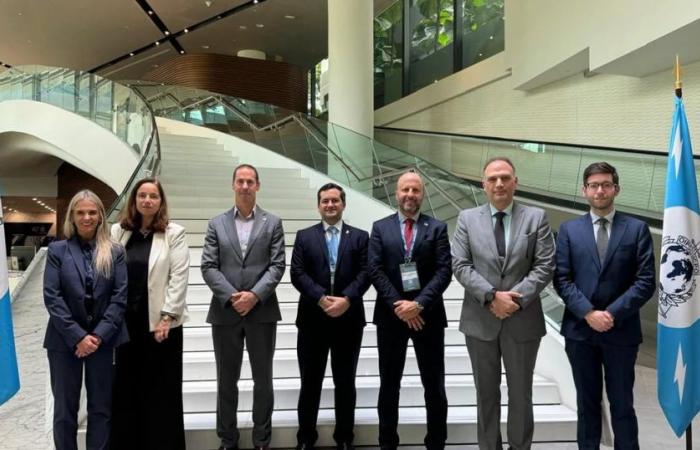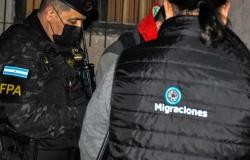
The Argentine delegation before the Financial Action Task Force (FATF)headed by the Vice Minister of Justice, Sebastian Amerioand the president of the Criminal Cassation Chamber, Mariano Borinskyamong other officials, held meetings and contacts with authorities of that organization in Singapore to explain the country’s progress in the fight against money laundering and terrorist financing.
The objective is to avoid falling into the “gray list“, a category of States that do not cooperate in combat the movement of capital of illicit originAs the drug trafficking and organizations terrorists.
Since Sunday, when the FATF meeting began, the Argentine delegation has held bilateral meetings with different countries in order to demonstrate the progress made in response to all the legal reforms that it has been carrying out, mainly the approval of the criminal type of financing. of terrorism, new obligated subjects and different resolutions of the Financial Information Unit (UIF).
The Argentine delegation coordinated from Buenos Aires by the Deputy Minister of Justice, Sebastián Amerio, is in Singapore and is made up of Mariano Borinsky, the head of International Affairs of the Ministry of Justice, Eugenio Curia; Ignacio Yacobucci, president of the Financial Information Unit, Silvina Rivarola, of the Central Bank, Felipe Giménez Losano, of the Foreign Ministry; and Mariana Currais, director of Internationals at the UIF.
The Argentine delegation also met with the director of Interpol, Jorge Fainstein, at the Interpol headquarters in Singapore, the largest international Criminal Police network, made up of 196 countries, which has 3 headquarters in Lyon, Buenos Aires and Singapore. Topics were discussed such as criminal intelligence analysis, cybercrime, financial crimes, money laundering, corruption, red alerts, freezing of assets, assistance and training, fundamental aspects in the fight against organized and transnational crime.
The FATF is the G-40 international organization made up of the most important countries in the world and international organizations such as OECD, World Bank, IMF, European Commission, United Nations. It is a multilateral entity that seeks to strengthen national prevention systems regarding money laundering, terrorism, terrorist financing and the proliferation of weapons of mass destruction.
According to information released by the Argentine delegation, it is a fundamental fact that Argentina since 2011 could barely show three convictions for money laundering in terms of the actions of the Justice. On the last visit on site that the FATF made to our country last March, stated that there were 77 sentences for convictions of money laundering and confiscations for millions of pesos.
This was one of the important conclusions of the meeting that took place in Buenos Aires, at the headquarters of the Chancellery, with all the representatives of the Federal Justice, the Public Prosecutor’s Office, the FIU and the Central Bank, who reported of the progress made by Argentina in legislative matters and in the field of Justice on money laundering and terrorist financing.
They are valuable background information for the meeting at the FATF headquarters in Paris, which will be held with evaluators of Argentina’s performance and which will take place next August. After that, in October, it will be decided whether the Financial Action Task Force grants final approval for each country.
Argentina’s permanence in the G40 FATF world group is fundamental due to its relationship with international credit with the International Monetary Fund and the World Bank, international organizations such as the OECD and the United Nations and its global positioning in relation to world powers. Entering the “gray list” would imply, among other consequences, a potential drop of up to 7 points in GDP, according to research by the IMF itself.





